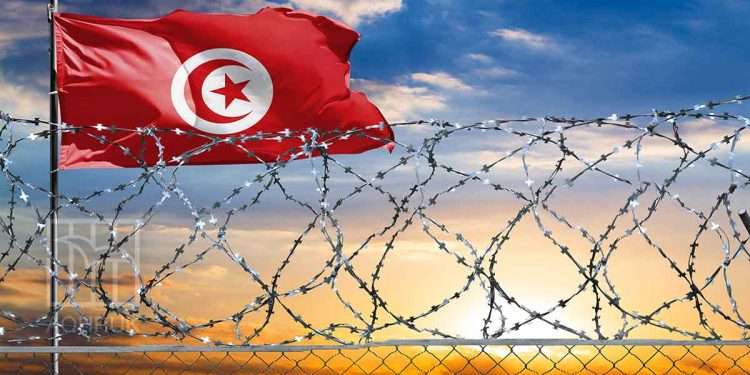Tunisian authorities have recently transferred several detained political opponents to prisons located far from the capital, in a move that has raised concerns among rights monitors about increasing restrictions on detainees and further obstruction of access to legal and familial support.
At least seven political prisoners, including well-known opposition figures Issam Chebbi and Ridha Belhaj, were moved from Mornaguia prison near Tunis to more remote facilities such as Borj Erroumi prison near Bizerte and Siliana prison in the western interior. The transfers were carried out without prior notification to families or legal representatives, effectively disrupting regular visits and essential communication.
The unexpected relocation of detainees has significantly impacted their ability to maintain familial ties and receive material support. Weekly visits, often critical for mental wellbeing and provision of basic necessities, have become logistically difficult or impossible for many families. Legal teams have also reported growing obstacles to maintaining consistent access to their clients.
Such transfers are viewed by human rights observers as punitive in nature and intended to deepen the isolation of detainees. Conditions in some of the destination facilities, particularly Borj Erroumi, have been described in previous reports as overcrowded and lacking in basic safeguards for dignity and humane treatment.
The individuals affected by these transfers had been sentenced under exceptional judicial proceedings on charges of “conspiring against state security”, with cumulative prison terms reaching up to 74 years. The verdicts were issued in a context marked by an intensification of state measures targeting dissent, widely interpreted as part of a broader campaign to silence opposition voices.
In some instances, the transfers were reportedly carried out by force, further indicating the use of administrative measures as an extension of punishment beyond the court sentence. This practice raises serious concerns regarding the treatment of detainees and the psychological impact of increased isolation, compounded by a lack of transparency and judicial oversight.
International human rights standards require that prisoners be treated with dignity, allowed regular access to family and legal counsel, and held in conditions that respect their physical and mental health. The sudden relocation to remote prisons undermines these rights and poses additional barriers to ensuring due process and fair legal representation.
The developments come amid growing concern over the erosion of institutional independence in Tunisia, and what rights advocates describe as a deteriorating human rights environment. The transfers underscore the need for renewed scrutiny of prison practices and judicial safeguards for individuals detained in connection with political activities or expression.
Calls from civil society and legal advocacy groups for the protection of political detainees’ rights, and for the cessation of practices that isolate and marginalise them, have intensified. In the absence of effective institutional checks, such public pressure is increasingly seen as essential to preserving fundamental freedoms and the rule of law in Tunisia.


























